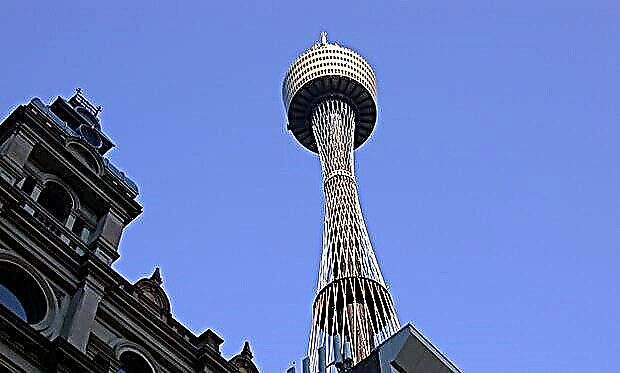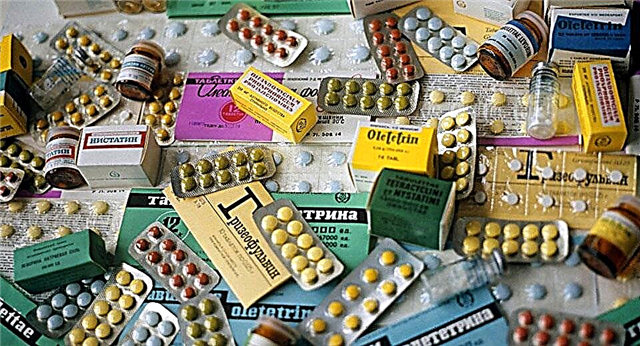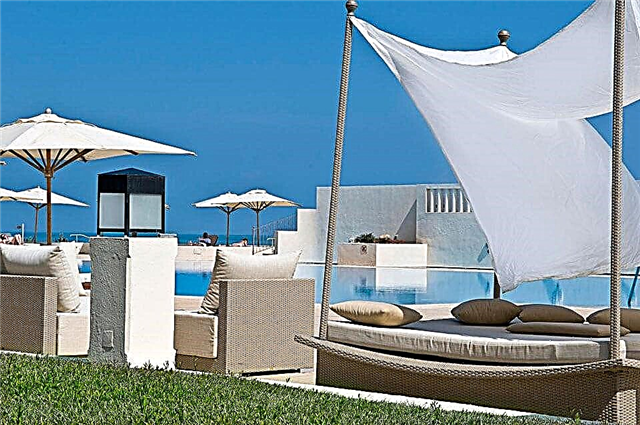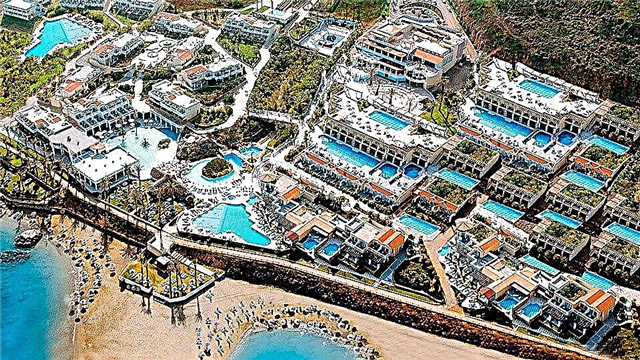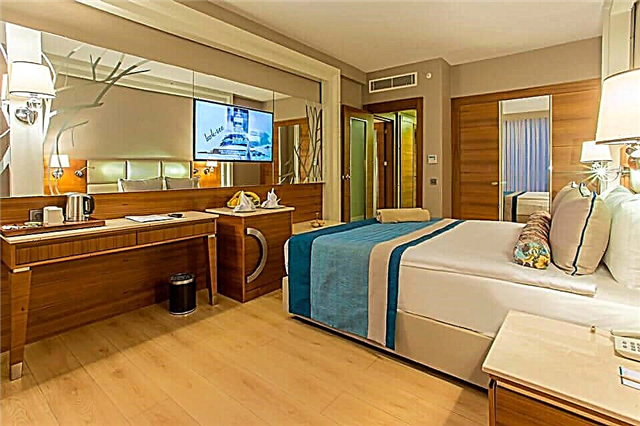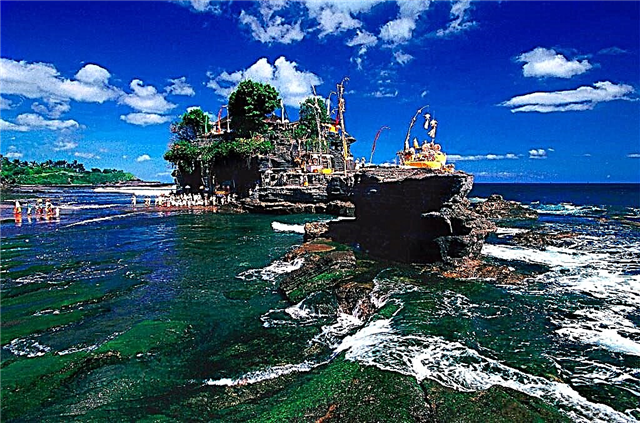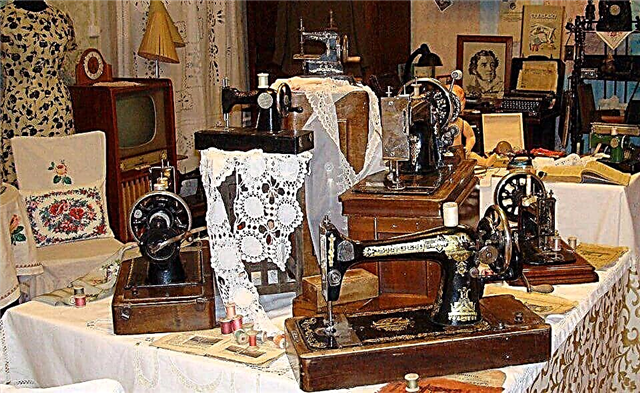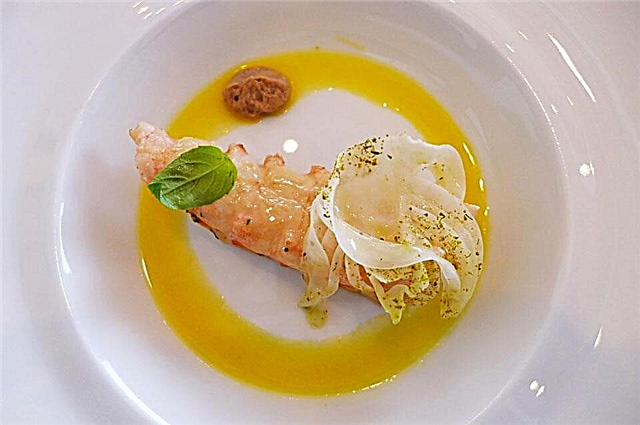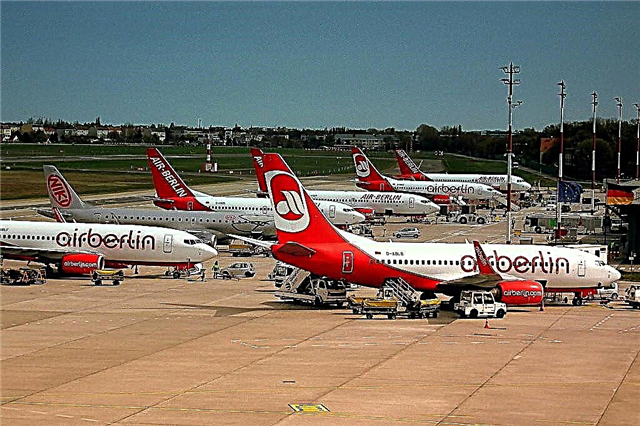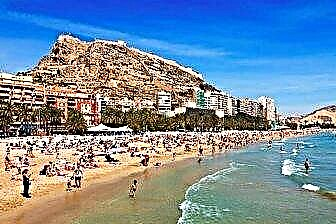The popular Spanish resort of Alicante occupies a central place among the towns of the Costa Blanca - a real pearl of the Mediterranean. In the midst of the summer heat, the beaches of the city are very crowded, as not only foreign tourists, but also the Spaniards themselves love to relax in this place.
Tourist Alicante is comfortable hotels, snow-white yachts, well-groomed embankments and magnificent beaches. Also, the city has another side - traditional Spanish streets, old facades of dilapidated houses and powerful fortresses from the period of the decline of the Spanish colonial empire. If you alternate sightseeing walks in Alicante with relaxation on its impeccable coastline, your vacation promises to be varied and eventful.

The best hotels and hotels at affordable prices.
from 500 rubles / day
What to see and where to go in Alicante?
The most interesting and beautiful places for walking. Photos and a short description.
Esplanade of Spain
Promenade, the heart of the tourist life in Alicante. There are restaurants, shops and banks here. In the evenings, performances are shown in a special concert pavilion. The street stretches for 500 meters from the city port to a small cozy park. The Esplanade pavement is lined with multi-colored stone, which forms a harmonious pattern. On the sides are slender palm alleys.

Port of Alicante
The port of Alicante is a picturesque marina - a mooring place for yachts, boats, motor boats and other types of ships. Mediterranean cruise ships often anchor here. The harbor is also of great economic importance, with cargo ships arriving here regularly. In the port, tourists can order a boat trip on a yacht or rent a whole ship. The main walking street, the Esplanade of Spain, stretches along the port of Alicante.

Fortress Santa Barbara
The fortress is one of the main historical landmarks of Alicante. It is located on the top of Mount Benacantil. The building was erected in the 9th century during the reign of the Moors over the Iberian Peninsula. Until the 18th century, the fort was of great strategic importance and was used for its intended purpose. Until 1963, the fortress was in disrepair. After the restoration, its territory was open to the public.

Fortress of San Fernando
The castle is located in the central part of the city. It was built in the 19th century in order to repel a possible attack by the troops of Napoleon Bonaparte. But the French never came to Alicante. The castle is surrounded by a picturesque park, perfect for sports and walking. After a long period of desolation, the fortress was restored and opened to everyone.

District of Santa Cruz
The historical part of the city, located at a relative distance from the tourist areas at the foot of Benacantil. The old town consists of only a few small streets that lead to the Santa Barbara Fortress. Santa Cruz is a typical urban quarter of a Spanish provincial town with peeling walls in some places, charming flower gardens on small terraces and bright facades.
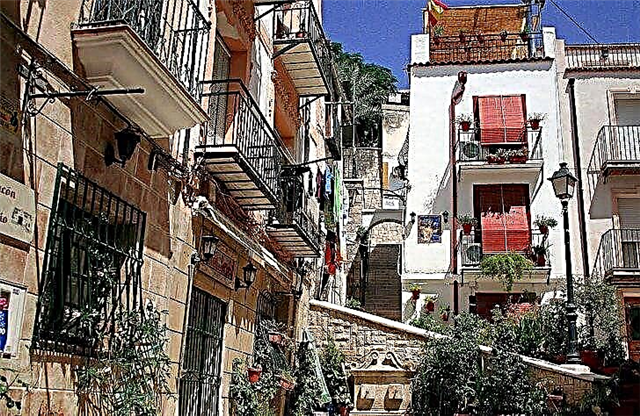
Luceros Square
The main square of Alicante, from where many tourist routes start. Airport buses also come here. In the center of Luceros, there is a 1930 stone fountain surrounded by a green lawn with palm trees. Modern residential buildings, offices, retail premises and administrative offices are located around the square. The two central highways of Alicate start at Luceros.

Gabriel Miró Square
The square is a shady green square overgrown with subtropical vegetation. There are centuries-old trees with powerful trunks, palms and flowers. This is a great place to hide in the shade from the scorching Spanish sun. The square and square are named after the writer Gabriel Miró, who was a native of Alicante. A memorial stone to the left of the central fountain reminds of this fact.

Basilica of Santa Maria
Gothic church of the late 14th century, located on the site of a former mosque. The temple was founded in honor of the expulsion of the Moors and the liberation of this part of Spain from Arab rule. In later centuries, the basilica was rebuilt in the Spanish Baroque style. Inside the church is a gilded altar from the 18th century and a valuable organ from the 16th century. The interior is decorated with elaborate statues of St. John and the Virgin Mary.

Cathedral of Saint Nicholas
The temple is dedicated to Saint Nicholas - the patron saint of Alicante. It was erected on the ruins of a mosque in the 17th century. The building was built in a transitional style from the Renaissance to the Baroque, which is distinguished by its restrained architectural forms. The cathedral is crowned with an imposing 45-meter dome, marble dominates in the interior decoration. The 16th century church altar created by master N. Borras deserves special attention. The temple contains the relics of St. Francis Xavier, Felicita and Roch.

Archaeological Museum
A large museum with an impressive collection of 81 thousand items. A large number of exhibits have been found and collected on the territory of the Costa Blanca region. The Archaeological Museum of Alicante ranks among the largest collections in Spain. The exhibition halls are equipped with modern equipment, so visitors have the opportunity to watch videos or listen to short lectures about a particular historical period.

Volvo Ocean Race Museum
Volvo Ocean Race is a unique round-the-world regatta that starts in Alicante and lasts for several months. It has been held here since 2005. In 2012, a museum dedicated to this event was opened, which is one of a kind. Thanks to interactive technologies, visitors will be able to feel like participants in a grand voyage, as well as learn more about the features of the ecosystems of the seas and oceans.

Modern Art Museum
A gallery with an impressive collection of true "mastodons" of contemporary art. There are works by Miro, Picasso, Chagall, Kandinsky, Varaseli and Gonzalez. The museum is located in an old building of the 17th century. Its history began in 1978, when the local abstract artist E. Sempere donated his collection of paintings to the city. Works by Sempre himself occupy a separate floor of the museum.

Museum of Fine Arts at the Gravina Palace
The gallery is located in an 18th century palace. The museum opened in 2001 after a complete restoration of a somewhat dilapidated building. The museum collection is a collection of paintings by artists and sculptors from Alicante and the surrounding area who worked in the period of the 16th-20th centuries. There are works by H. Agrosot, L. Casanov, A. Hisbert, F. Cabrera and other masters. The museum has a program to support young talents.

Central market
The main market of Alicante, located in a building that occupies an entire city block. The shopping malls are located on two floors - one sells meat of all possible types and forms, the other houses numerous counters with seafood, fish, vegetables and fruits. The market also has a large section with wines, cheeses, olives, spices, nuts and all kinds of sweets.

City Hall of Alicante
The building of the City Hall was built in the 18th century according to the project of V. Soler in the Spanish Baroque style. The construction work lasted for about 90 years. A system of fountains is installed on the square in front of the city hall, whose jets flow directly from the pavement, which delights children and local dogs. Public holidays are often held near the city hall. In the lobby of the building, there is a sculpture of St. John, created by Salvador Dali.

House of Carbonel
The building was erected in the 1920s in the Art Nouveau style, which was fashionable for those times, with neo-baroque elements. Today it is considered one of the most picturesque in Alicante. The house was designed by the architect JB Ramos for E. Carbonell, a textile industrialist who settled in Alicante. The luxurious building was erected on the site of the old city market next to the "Palace" hotel.

Ship "Holy Trinity"
The ship is permanently docked in the port of the city. It is a replica of a real 18th century galleon that was built in Cuba. The ship took part in many battles, including the famous Battle of Trafalgar. After this devastating battle, the Holy Trinity sank off the coast of Cadiz in 1805. A copy of the ship was built in the 2000s. There is a restaurant, bar, nightclub and museum on board.

Tabarka island
The island is located near the Costa Blanca and is home to several dozen people employed in the tourism industry. The island is mentioned in documents from the 18th century in connection with the seizure of its territory by the Tunisian army. There are several old churches and mansions on Tabarka. Numerous restaurants are open for tourists, offering a wide variety of seafood dishes.

Postiguet beach
The beach is located in the center of the resort area of Alicante. Thanks to its picturesque surroundings, white sand and clear water, it has received the prestigious Blue Flag quality seal. Postiguet is considered the city's best beach, with numerous cafes, playgrounds and water sports equipment rental. The beach is located close enough to the historic part of Alicante.

Bonfires of Saint John the Baptist
Spanish folk festival, which is celebrated every summer from 18 to 29 June. It is dedicated to the Day of St. John the Baptist. The largest celebrations take place on the territory of Alicante. Throughout the week, bright processions, parades and a competition of giant figures are held on the streets, fireworks are launched, people burn stuffed animals and jump over the fire. Some traditions of this holiday are similar to the Slavic Midsummer Day.


